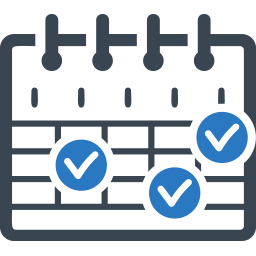Schedule variability linked to fatigue and human factors incidents
Updated: September 28, 2020
Schedule variability linked to fatigue and human factors incidents in new US Department of Transportation, Federal Railroad Association study.
In April 2014, the U.S. Department of Transportation’s Federal Railroad Association (FRA) released a report examining the relationship between work shift start time variability and increased accident risk.
The research concluded that work shifts with greater inconsistency increases worker fatigue and associated accident risk.
To help reach these conclusions, Fatigue Science’s Fatigue Avoidance Scheduling Tool® (FAST) was used to measure fatigue across various schedule scenarios. The FRA researchers used a score below 90 to determine if fatigue was present, and then measured the amount of time workers spent below that level during working hours.
Where schedules in which an accident had occurred exhibited a high rate of start time variability, FAST demonstrated the workers were spending as much as 50-60% of their time below a score of 90.
The report concludes:
“Fatigue, as measured by the FAST score, was also shown to be a function of start time variability. While it was previously demonstrated that fatigue was a general function of sleep and work schedules (Raslear et al., 2011), this report extends that finding to specify start time variability as a critical aspect of work schedules when considering fatigue and the probability of an accident.”
Key takeaways:
- The U.S. Department of Transportation trusts Fatigue Science’s technology as a tool for accurately predicting fatigue.
- Fatigue is not only a factor for night shift or rotating shift workers.
- When shift start times are inconsistent, day shift workers can be subject to increased levels of fatigue.
- Evidence-based decisions can reduce fatigue in a workforce without adversely affecting operations.
Readi™ Enterprise Suite
Fatigue Science’s Readi Enterprise Suite builds upon this scientific model to provide fatigue prediction across the workforce.
- For workers, the Readi™ app provides a ReadiScore that reflects how reaction times are impacted by fatigue. This data is private and secure, allowing workers to self manage their fatigue.
- For supervisors, ReadiSupervise provides an overview of ReadiScores across the workforce. This data can be anonymized to retain privacy while facilitating informed decision-making.
- For leadership, ReadiAnalytics™ provides tools to measure potential fatigue in work schedules. This allows for both past incident analysis and optimized planning.
Contact Fatigue Science
To see how Fatigue Science’s proven fatigue prediction and analysis tools can reduce the risks in your workplace, contact us.
Interested in learning more about data-driven fatigue management?
or download our free eBook on the Science of Sleep for industrial workforces

